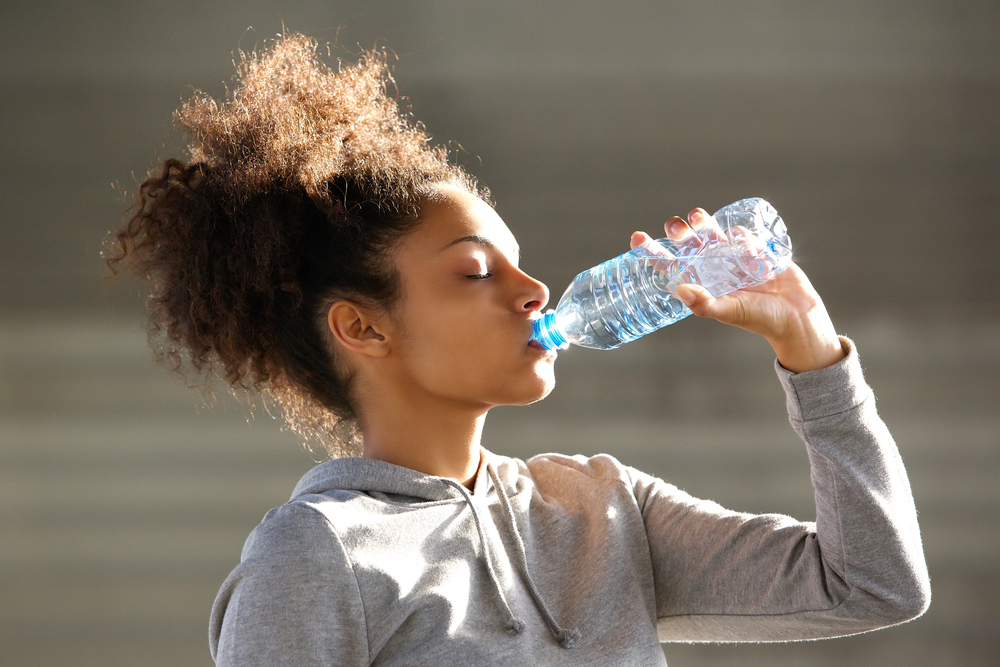When that parched feeling strikes, the solution seems simple enough: guzzle a glass of H20 and steer clear of salty foods. But if you find that your thirst isn’t quenched no matter how much water you drink, your bod could be dropping a hint that something else is going on.
“When we’re thirsty, we naturally think dehydration—but that feeling of thirst may be a sign of an underlying medical condition,” says Mia Finkelston, M.D., board-certified family physician for the telehealth app LiveHealth Online. If excessive thirst is present more days of the week than not, then you should check in with your doc for a consult—especially if you’re experiencing other weird symptoms too, such as fatigue, headaches, skin and hair changes, and an uptick in bathroom breaks.
“This is a symptom that should be mentioned at yearly physicals,” says Finkelston, as your perma-dry mouth could be a sign of one of the following conditions:
DIABETES MELLITUS
“The most common medical condition associated with excessive thirst is diabetes,” says Kimbre Zahn, M.D., family and sports medicine doctor at Indiana University Health. Diabetes mellitus is the long name for diabetes, type 1 or 2, which can both make it difficult for your body to control the level of glucose (sugar) in your blood. This triggers your kidneys to produce more urine to get rid of the excess sugar, causing dehydration and sending your thirst signal into overdrive.
DIABETES INSIPIDUS
Although this condition is unrelated to diabetes mellitus, diabetes insipidus does share some of the same symptoms, including extreme thirst and excessive bathroom trips. Normally, your kidneys remove excess body fluids from your bloodstream, shuttling them along to your bladder. On the flipside, when your body loses water (think: sweating), your kidneys conserve fluid and make less urine. “With diabetes insipidus, your kidneys are unable to retain water,” says Zahn. “Despite a decrease in overall body fluid volume, the kidneys continue to produce large amounts of urine, resulting in worsening dehydration and increased thirst.” It typically occurs as an inherited disease, but can also be seen with chronic kidney conditions or with certain medications, says Zahn. However, your doctor will be able to perform specific tests, like a urine analysis, to tell if it’s one or the other.
LOW BLOOD PRESSURE
“Many experts believe chronic stress can cause our adrenal glands to function less efficiently, lowering our blood pressure and resulting in thirst,” says Finkelston. When our blood pressure dips, the body receives a signal from the brain to drink more fluids, she explains. Sending more water to the bloodstream helps to raise blood pressure.
ANAEMIA
Blood loss—say, if you experience heavy periods—is one of the most common causes of anemia, according to the National Heart, Lung, and Blood Institute. When a lot of blood is lost, the body may lose enough red blood cells in the process to cause anemia, as well as deplete fluid levels enough to trigger thirst, says Finkelston.
DRY MOUTH
Some people may suffer from dry mouth, known as xerostomia, which can manifest with excessive thirst. It often occurs with aging and changes in hormone levels, and is treated by staying hydrated and avoiding things that can dry out your mouth more, says Finkelston, such as caffeine and alcohol. Certain medications can also cause dry mouth—antidepressants, blood pressure meds, and antihistamines are notorious for this side effect. “Dry mouth is sometimes associated with other medical conditions, but that can be ruled out relatively easily by your doctor,” says Finkelston. “More often it’s a nuisance, not an indicator of worsening illness.” Phew.


